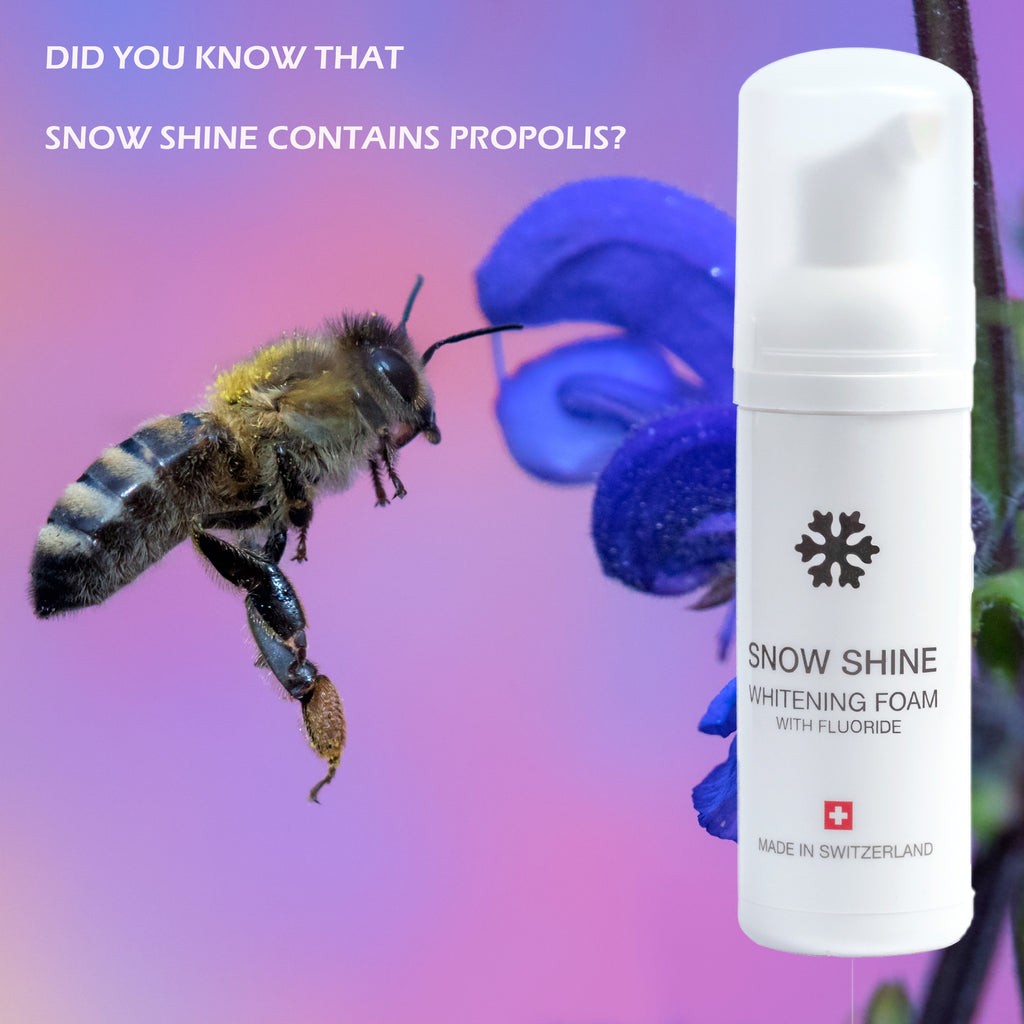
Let’s talk about propolis
Propolis is a resinous substance collected by bees from buds, bark, and other plant sources. Also known as “bee glue”, it is used by bees to protect and seal their hive.
Propolis contains a variety of bioactive compounds, including flavonoids, phenolic acids, and terpenes. Because of these compounds, propolis has traditionally been used to treat various ailments, including the common cold, sore throats, gingivitis, and skin conditions like acne and eczema.
Modern research is also studying propolis and there is some promising evidence that it has anti-inflammatory, antioxidant and antiviral properties. There is also some evidence that propolis may help treat cancer, diabetes and other chronic diseases, but more research is needed to confirm this.
People have used propolis for its potential health benefits for centuries. Here are some uses of propolis:
- Immune System Support: Propolis contains a variety of compounds that can boost the immune system and inhibit the growth of bacteria and viruses.
- Inflammation Relief: Propolis can help in reducing inflammation in the body as it contains anti-inflammatory compounds.
- Pain Relief: Propolis can help reduce pain as it contains pain-relieving compounds.
- Wound Healing: Propolis can help heal wounds by promoting the growth of new cells and reducing inflammation.
- Oral Health: Propolis can help improve oral health by fighting bacteria and viruses and helping prevent tooth decay and gingivitis.
- Skin Health: Propolis may help treat skin conditions like acne, eczema, and psoriasis by reducing inflammation and encouraging new cell growth.
However, it is important to note that propolis can cause allergic reactions in some people and that it can also interact with certain medications. It is therefore advisable to consult a doctor before using propolis, especially if you are already taking medication or are allergic to bee products.
